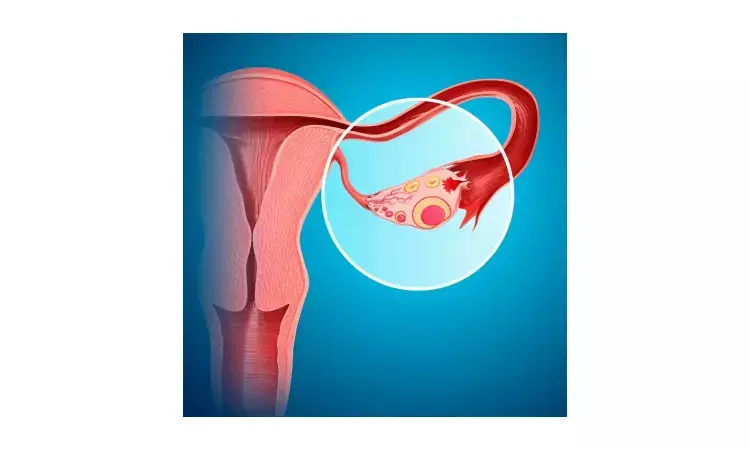- Home
- Medical news & Guidelines
- Anesthesiology
- Cardiology and CTVS
- Critical Care
- Dentistry
- Dermatology
- Diabetes and Endocrinology
- ENT
- Gastroenterology
- Medicine
- Nephrology
- Neurology
- Obstretics-Gynaecology
- Oncology
- Ophthalmology
- Orthopaedics
- Pediatrics-Neonatology
- Psychiatry
- Pulmonology
- Radiology
- Surgery
- Urology
- Laboratory Medicine
- Diet
- Nursing
- Paramedical
- Physiotherapy
- Health news
- Fact Check
- Bone Health Fact Check
- Brain Health Fact Check
- Cancer Related Fact Check
- Child Care Fact Check
- Dental and oral health fact check
- Diabetes and metabolic health fact check
- Diet and Nutrition Fact Check
- Eye and ENT Care Fact Check
- Fitness fact check
- Gut health fact check
- Heart health fact check
- Kidney health fact check
- Medical education fact check
- Men's health fact check
- Respiratory fact check
- Skin and hair care fact check
- Vaccine and Immunization fact check
- Women's health fact check
- AYUSH
- State News
- Andaman and Nicobar Islands
- Andhra Pradesh
- Arunachal Pradesh
- Assam
- Bihar
- Chandigarh
- Chattisgarh
- Dadra and Nagar Haveli
- Daman and Diu
- Delhi
- Goa
- Gujarat
- Haryana
- Himachal Pradesh
- Jammu & Kashmir
- Jharkhand
- Karnataka
- Kerala
- Ladakh
- Lakshadweep
- Madhya Pradesh
- Maharashtra
- Manipur
- Meghalaya
- Mizoram
- Nagaland
- Odisha
- Puducherry
- Punjab
- Rajasthan
- Sikkim
- Tamil Nadu
- Telangana
- Tripura
- Uttar Pradesh
- Uttrakhand
- West Bengal
- Medical Education
- Industry
Premenopausal removal of ovaries linked with risk of parkinsonism and Parkinson's disease: JAMA

USA: Premenopausal women undergoing prophylactic bilateral oophorectomy before menopause are at an elevated risk of Parkinson's disease (PD) and parkinsonism versus their counterparts who did not experience this surgery, a recent study has shown.
The findings, published in JAMA Network Open, indicate that a reduction in prophylactic bilateral oophorectomy in women with average ovarian cancer risk may be substantially beneficial for reducing the risk of PD and parkinsonism.
In men, age-specific incidence rates for PD are higher compared to women across studies and populations. Men and women also differ in their clinical manifestations, risk factors, and response to treatment for Parkinson's disease. These differences have partly been explained by estrogen's possible neuroprotective benefit for dopaminergic neurons. In premenopausal women, surgical removal of the ovaries to prevent ovarian cancer provides a direct testing of this hypothesis. However, the results are inconsistent; 3 studies supported the association, and two did not.
Against the above background, Walter A. Rocca, Department of Neurology, Mayo Clinic, Rochester, Minnesota, and colleagues aimed to determine if women who underwent premenopausal bilateral oophorectomy are at elevated risk of parkinsonism and PD in a cohort study. They also assessed whether the associations varied by receipt of estrogen replacement therapy and age at oophorectomy.
For this purpose, the researchers used data from a combination of 2 independent cohort studies, Aging 1 and 2 and the Mayo Clinic Cohort Study of Oophorectomy. The study included a population-based sample of 5499 women; 2750 women underwent bilateral oophorectomy for a benign indication prior to menopause (oophorectomy cohort), and 2749 age-matched women who did not undergo bilateral oophorectomy. They were randomly sampled from the general population (reference cohort).
The study led to the following findings:
- Among 5499 participants, 2750 women underwent bilateral oophorectomy, and 2749 women with a median age of 45.0 years at the index date were in the reference cohort.
- Bilateral oophorectomy was linked with an overall increased risk of parkinsonism (hazard ratio [HR], 1.59) and in women younger than 43 years at bilateral oophorectomy (HR, 7.67).
- The authors observed a pattern of increasing risk with younger age during oophorectomy using four age strata (≥50 years: HR, 1.43; 46-49 years: HR, 1.55; 40-45 years: HR, 1.36; <40 years: HR, 8.82).
- Overall, the number needed to harm was 53 women and 27 women younger than 43 during oophorectomy.
- Bilateral oophorectomy was also linked with an increased PD risk in women younger than 43 years at oophorectomy (HR, 5.00), with a number needed to harm 48 women.
- In women who underwent oophorectomy at the age of 45 years and younger, the risk was less in women who were given estrogen after the procedure and through age 50 years versus women who did not.
- For parkinsonism, the HRs were 1.72 vs. 2.05; for PD, the HRs were 1.53 vs. 2.75. However, the differences were not significant.
"The findings provided stronger affirmation supporting an association between premenopausal bilateral oophorectomy and an elevated parkinsonism risk and an increased risk of PD among women younger than 43 years at oophorectomy," the researchers conclude.
Reference:
Rocca WA, Smith CY, Gazzuola Rocca L, Savica R, Mielke MM. Association of Premenopausal Bilateral Oophorectomy With Parkinsonism and Parkinson Disease. JAMA Netw Open. 2022;5(10):e2238663. doi:10.1001/jamanetworkopen.2022.38663
Dr Kamal Kant Kohli-MBBS, DTCD- a chest specialist with more than 30 years of practice and a flair for writing clinical articles, Dr Kamal Kant Kohli joined Medical Dialogues as a Chief Editor of Medical News. Besides writing articles, as an editor, he proofreads and verifies all the medical content published on Medical Dialogues including those coming from journals, studies,medical conferences,guidelines etc. Email: drkohli@medicaldialogues.in. Contact no. 011-43720751


